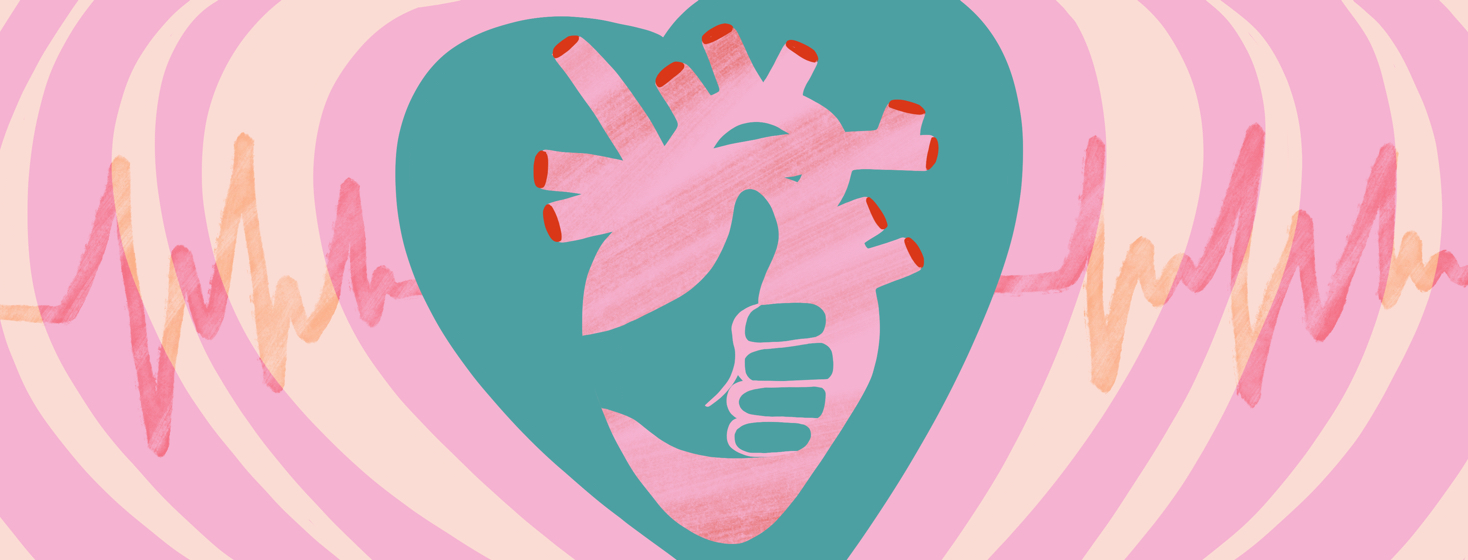Lupus Heart Health Management
Reviewed by: HU Medical Review Board | Last reviewed: January 2020 | Last updated: February 2020
Everyone needs to worry about heart health. But people with lupus need to pay even more attention to keeping their hearts and the supporting systems as strong as possible. That’s because people with lupus are even more likely to develop heart disease than people of similar age and gender without lupus.1
How big is the risk of heart disease if you have lupus? Big. Women under age 40 with lupus are nearly 5 times more likely to have heart disease than women of the same age. That’s regardless of whether they smoke, have high blood pressure, diabetes, or are obese.1
The good news is that there are many ways to keep your heart as healthy as possible, even with lupus. Some of these suggestions are the same for anyone concerned about heart health, and some are specific to lupus.
Regular exercise
The heart is a muscle, and like all muscles, it stays healthier and stronger if it has to work. That requires regular exercise. Exercise also improves circulation, helps you maintain a healthy weight, lowers cholesterol, reduces joint stiffness, and lowers blood pressure.2
Exercise can be challenging for people with lupus who also have significant joint pain, arthritis, or fatigue. For these cases, doctors recommend a daily walk of at least 30 minutes, and low-impact exercises such as yoga, tai chi, biking, or swimming.
Control high blood pressure
Uncontrolled high blood pressure is a major contributor to both heart disease and kidney damage. Your doctor may prescribe medicine to lower your blood pressure if it is too high and may suggest that you take regular blood pressure readings at home. Changes to your diet, such as less salt, less fat, and more fiber can also help lower blood pressure.2
Heart-healthy diet
There are many ideas about what constitutes a heart-healthy diet, but most doctors agree that people should eat:2
- Less salt
- Less saturated fat
- More fruits and vegetables
- More lean meat or plant protein
- More whole grains
- Little to no junk food or fast food
- Less sugar
A nutrient-rich, low-fat diet will also help you control your weight, reduce the risk of diabetes, and help reduce the fatigue of lupus.
Reduce steroid use (if possible)
Steroids are a common medicine used to control the many complications of lupus. Steroids used over the long-term can also damage the heart and blood vessels. This means that your doctor may try to find other medicines and self-care techniques to control your lupus and reduce the number of steroids you take. This is not always possible, especially during moderate-to-severe flares.1
Quit smoking
Smoking in all its forms raises blood pressure and puts you at higher risk for a heart attack and stroke. Smoking also makes lupus symptoms worse, especially skin disease, and makes antimalarials less effective.2,4
Drink less
Drinking too much alcohol can raise blood pressure and contributes to weight gain. Too much alcohol is considered more than one drink a day for women and two drinks a day for men.2
Get enough sleep
Too little sleep raises the risk of high blood pressure, diabetes, obesity, and brain fog. If you have trouble getting to sleep or staying asleep, seek help. Simples changes such as cutting back on caffeine, or turning off electronic devices and lowering the lights an hour before bed may help. Talk to your doctor if you snore. You may have sleep apnea and need to see a sleep specialist to receive treatment for it.2
Pay attention to early warning signs
Early treatment for heart disease can slow or even prevent permanent damage. That is why it is so important to talk with your health care team if you notice any of these signs are appearing gradually, get worse, or appear suddenly:3
- Chest pain
- Fatigue or weakness
- Shortness of breath
- Changes in skin color
- Coughing or wheezing
- Fainting, dizziness, or lightheadedness
- Swelling in the legs, ankles, or feet
- Pain or numbness in the muscles of the feet, calves, or thighs
- Fast or uneven heartbeat (palpitations)
- Difficulty speaking or moving limbs on one side of the body
Do something now
Depending on your individual symptoms, you may need to make some changes quickly to improve your heart health, such as starting a drug to lower your blood pressure or quitting smoking. But don’t overwhelm yourself by trying to implement all of the suggestions above at once. Even small, consistent changes can improve your heart health over time.
